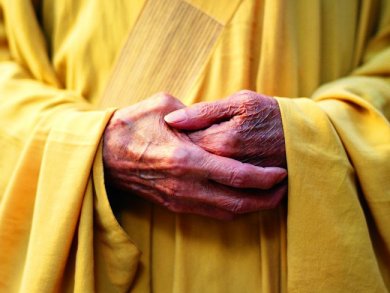A comparison of brain activity using functional magnetic resonance imaging (fMRI) techniques while subjects played the “ultimatum game”, shows important differences in the brains of people who practice Buddhist meditation and control subjects.
In the control subjects, the anterior insula, associated with the emotion of disgust, and thought to play a key role in recognizing violations of social norms, rejection, betrayal, and mistrust, was active. This was not the case for people that practiced Zen meditation. The reverse was true for activity in the posterior insula, where activity was seen in the meditators but not in the control subjects.
The research highlights how sustained mindfulness meditation can affect decision making.
- Read full article on SpectroscopyNOW >>>
- Interoception drives increased rational decision-making in meditators playing the Ultimatum Game
U. Kirk, J. Downar, P. R. Montague,
Frontiers Decision Neurosci. 2011, 5, 49.
DOI: 10.3389/fnins.2011.00049


